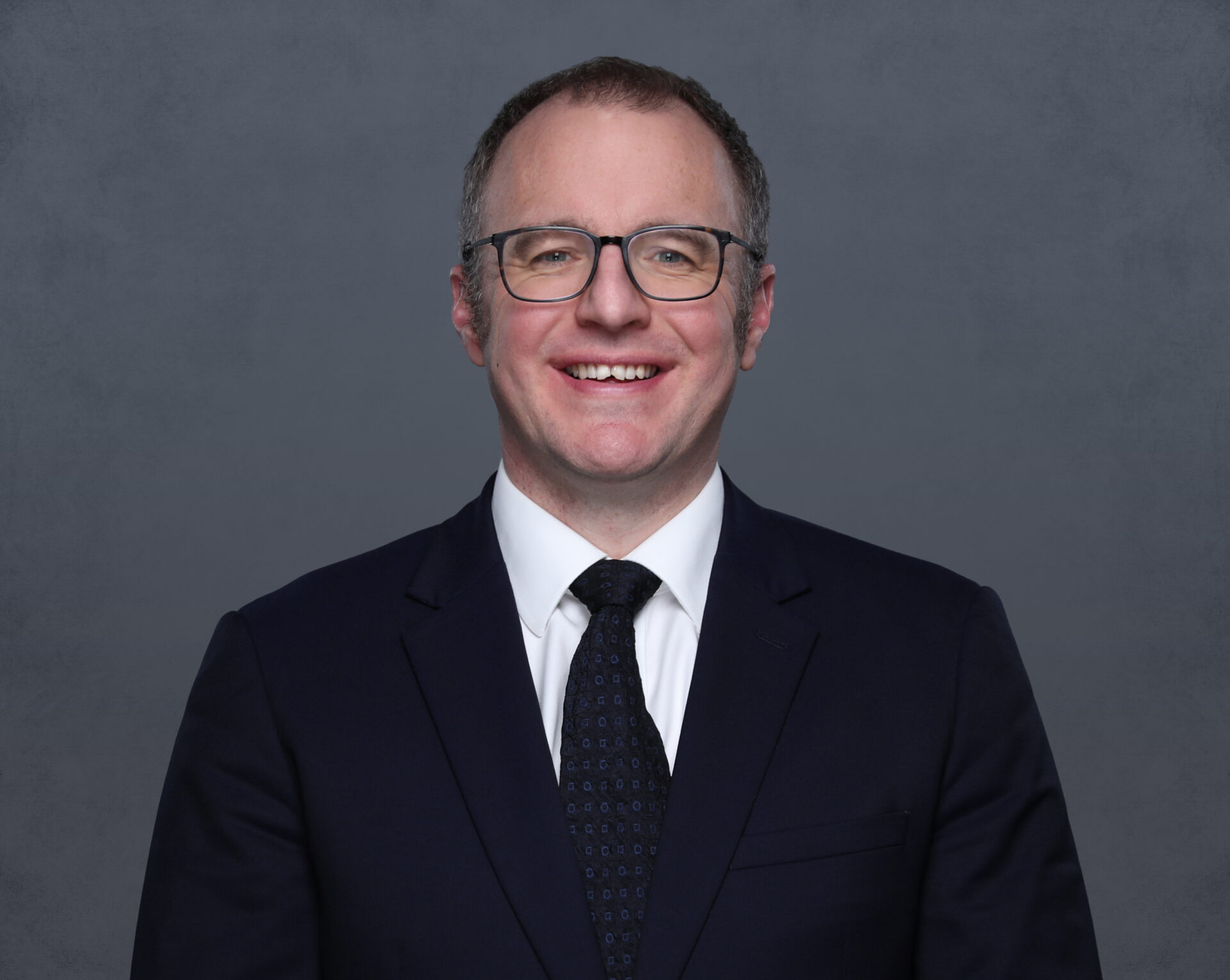Dr George Harston is Chief Medical and Innovation Officer at Brainomix. He is also a Consultant Physician in Stroke and General Medicine at Oxford University Hospitals NHS Foundation Trust. The company’s innovative AI-enabled decision support tools are helping clinicians to rapidly and accurately decide the type and severity of stroke, and the most appropriate treatment. It has enabled new ways of working. These scans can be shared securely within a few minutes of being processed and remote advice given immediately.
Tell us about the innovation. The what and the why?
Brainomix is an Oxford-based company specializing in the creation of AI-powered software solutions to unlock the potential of life-saving treatments. Our flagship product, e-Stroke, helps doctors to interpret brain scans, and facilitates faster, more confident treatment decisions for patients with suspected stroke.
Stroke is common. About 100,000 people in the UK have a stroke every year. Most strokes are caused by a blood clot blocking a blood vessel in the brain, but some are caused by bleeding in the brain. The findings on the brain scan of patients help diagnose the type of stroke and determine the best treatment to be given to each patient. About one in five people who have this type of stroke can be helped by either a clot busting drug (thrombolysis) or having the clot mechanically removed using a special device (thrombectomy) as well as access to multidisciplinary specialist input. Although these stroke treatments can help many patients avoid life-changing disability or death, they are time critical and unfortunately many patients miss out on these.
Diagnosing stroke and interpreting the brain scans is a complex challenge requiring specialist expertise. Most patients will be assessed by less specialist doctors when they arrive at a hospital meaning that not all patients get the right treatment when they need it. e-Stroke addresses this challenge by supporting both non-specialist and specialist doctors in the diagnosis and decision making for doctors seeing a stroke patients.
Which health innovation networks have you been supported by?
Health Innovation Oxford & Thames Valley (formerly the Oxford AHSN) was appointed by the Accelerated Access Collaborative to independently evaluate the impact of e-Stroke on stroke patient care in the NHS as part of the NHS AI in Health and Care Award. Its analysis has included data from across five stroke networks in the NHS (24 hospitals) using individual patient data from ~67,800 stroke patients. The preliminary report showed a significant benefit from e-Stroke on the number of patients receiving both thrombolysis and mechanical thrombectomy, and demonstrated the health economic value of e-Stroke.
What’s been the toughest obstacle to date?
Driving innovation in established systems of care can be challenging. Innovation demands changes in the way that people work and how systems operate, and there is often significant inertia and barriers to this change. To bring people with you demands a clear vision shared between all key partners, managing expectations appropriately, and, most importantly, providing the evidence of value to patients or the healthcare system that can justify the changes that need to happen.
What are your hopes for the future?
I would love to see AI technology becoming an established standard in both routine care and clinical trials of a wide range of conditions, resulting in better patient care. I am excited about the prospect of technology changing the way we work in healthcare and the way new treatments are developed. I hope we continue to see innovations unlocking access to treatments for more patients, as well as driving improvements in existing patient care.
What’s the best part of your job?
I really enjoy working with a range of people from across disciplines, both within and outside Brainomix. Working with people from different backgrounds and with different experiences is enlightening and an opportunity to learn and grow. I really value my colleagues and I am often reminded that the whole of the team is greater than the sum of its parts.
What are your three pieces of advice for budding innovators?
- Centre innovation around a problem or unmet need. Don’t shoehorn a solution into a problem that does not need solving or that might be better solved using a different approach.
- Don’t work on your own. Make sure you build the right team you need to deliver your objectives.
- Avoid the temptation to underestimate the complexity of projects or the timelines to deliver them. Take advice from people who have done it before and make ambitious but realistic plans.
What do service users say?
Professor Gary Ford CBE, FMedSci, Chief Executive of Health Innovation Oxford & Thames Valley and a Consultant Stroke Physician at Oxford University Hospitals, said: “Harnessing AI imaging technology within stroke networks has the potential to transform outcomes for many more stroke patients. We have worked with Brainomix and our NHS partners to ensure widespread adoption of e-Stroke and the evaluation is providing more evidence to support further spread.”

The government has set out three shifts it wants to see happen: treatment to prevention, hospital to community, analogue to digital. HealthTech has a crucial role in supporting the delivery of all three. But using technology to help deliver these changes requires procuring the technology, and when all the noise is about there being no [...]

Dr Anish Bhuva, is the founder of Pace MRI, a Consultant Cardiologist at Barts Heart Centre and an Associate Professor at University College London. Tell us about the innovation. What does it do, how does it help, who does it help and why is it important? Pace-MRI is an award-winning digital tool that manages complex [...]

As we celebrate International Women’s Day, Anna King, Commercial Director at Health Innovation Network South London, identifies how FemTech is 'Accelerating Action' in UK healthcare and driving economic growth. In recent years, FemTech - the sector focused on women’s health and wellness technology - has gained significant traction globally. In the UK, this growing sector [...]









